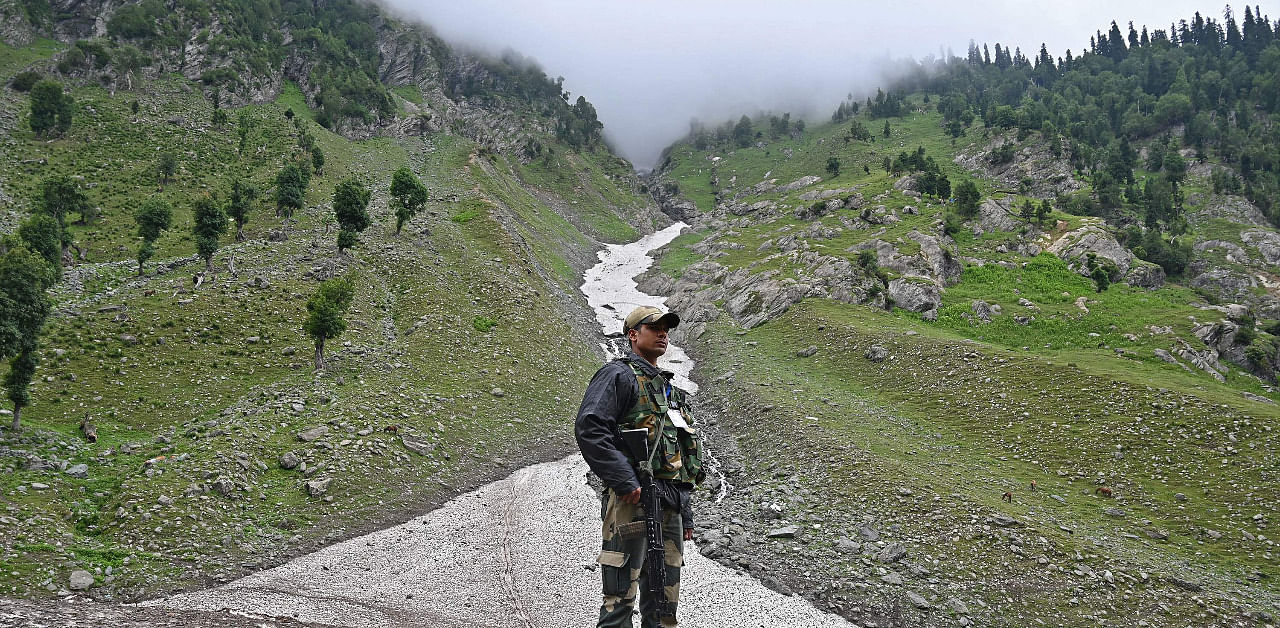
As glaciers in Kashmir are melting fast, having lost 23% of area in the last six decades, the valley could face major water scarcity in coming years which could result in less agricultural productivity.
Kashmir Himalayas have the highest number of glaciers in the Indian sub-continent and thus feed many important rivers of northern India. However, all the glaciers of Kashmir Himalayas are in the process of retreat due to the dramatic increase in the temperature.
A new study carried out by experts at Kashmir University (KU) reveals that the glaciers were melting at around 35 cm in thickness every year. The study conducted by Prof Shakeel Romshoo of KU’s Geo Informatics department and his team has been published in UK-based Nature Research, a reputed scientific journal.
The authors said they covered all 12243 glaciers of Jammu and Kashmir that existed as per 1947 political borders, in their study. The study calculated the total volume of ice that has melted from these glaciers in a span of 12 years (2000-2012).
As per the study, the glaciers of J&K have lost 70 giga tons of ice over a decade which as per scientists is alarming and will have serious implications on environmental balance.
“We conducted research about how glaciers have thinned and how much volume of ice has depleted from 2000 to 2012,” said Tariq Abdullah, one of the experts.
He said they used various data, research tools and satellite imagery. These research tools include Geographic information System (GIS). We have also used data from US-based satellites and German AeroSpace satellites,” Abdullah said.
Another research conducted recently has found that Kashmir glaciers have lost 23% of area in the last six decades. The experts believe that Kashmir could face major water scarcity in coming years which could result in less agricultural productivity.
The research reveals that annual discharge of river Jhelum will drop by 50% by the end of 2050 which will decrease agricultural production in Kashmir by more than 50%.
Experts say climate change is going to have adverse effects on the food production in Kashmir. According to official figures, there is already a 36% food grain deficit in Kashmir and it may cross 50% by 2030 if the corrective measures were not taken by the government.
Kashmir’s most power generation is dependent on hydro resources and experts have cautioned that reduction in the volume of ice in glaciers will have serious implications on stream flow which will in turn affect hydro electricity generation.